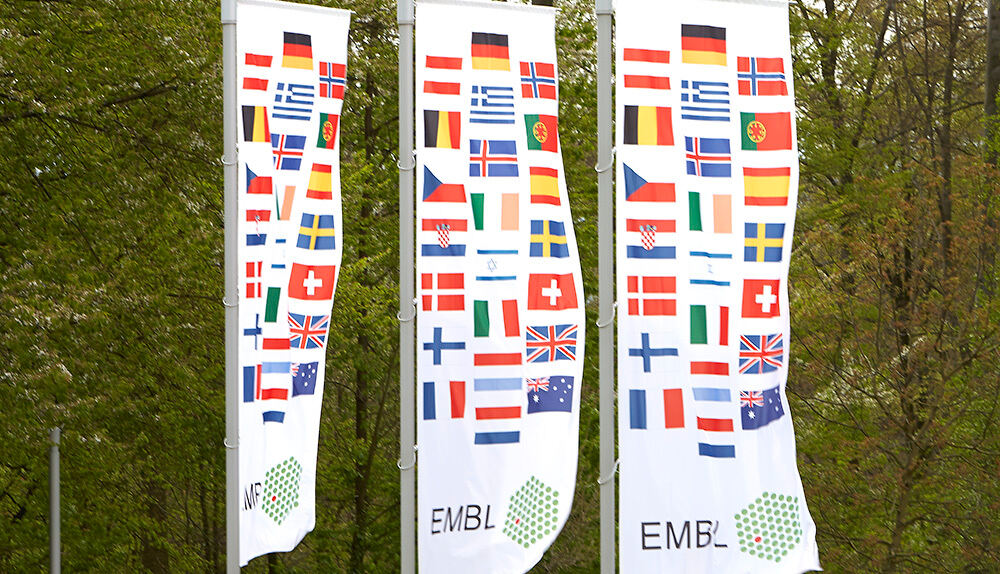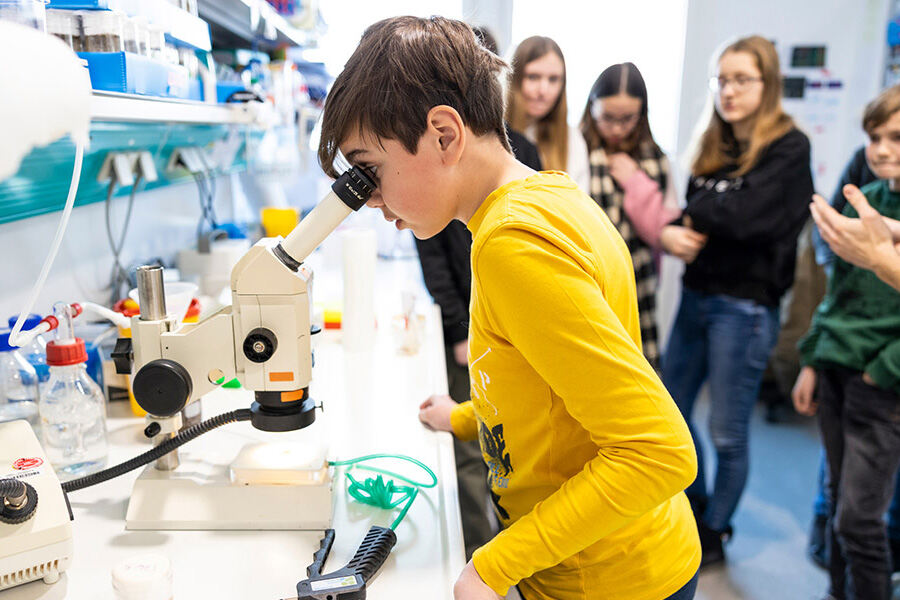While an environment’s impact on phenotypes (an organism’s observable characteristics or traits) is well described for individual organisms and their greater populations, the underlying molecular processes and mechanisms are not. More research– at the molecular level –is needed to understand the underlying principles of phenotypic variation and how organisms respond to changing environments.
EMBL Programme
EMBL’s vision is to advance understanding of ecosystems at the molecular level and study life in context. The result will be fundamental research that expands what we know about life on earth and provides new means to address major global challenges.
This new Programme will expand EMBL’s scope to study the molecular basis of life in the context of changing environments, transforming our understanding of life on earth and informing potential solutions for some of society’s biggest challenges, such as irreversible loss of biodiversity, antimicrobial resistance, pollution, climate change, food security, and emergent pathogens.
Over recent decades, remarkable molecular insights have been made in model organisms, ranging from bacteria to animals, under defined lab conditions. However, living things do not exist in isolation. From plankton in oceans to bacteria in the human gut, every organism in nature is part of a complex and dynamic ecosystem, living in a community with other organisms, in physical and chemical environments.
Today’s environmental challenges are complex, requiring a multitude of approaches to find creative solutions. EMBL embodies a unique collaborative model for life sciences that allows it to coordinate, truly integrate, and lead flagship initiatives. This new Programme will expand EMBL’s ability to bridge the gap between molecular biology and other disciplines, such as ecology, epidemiology, toxicology, engineering, and mathematical theory, to name but a few.
“The world’s most challenging problems require ‘all hands on deck’. Today, molecular biologists have unprecedented tools and talent to explore the mechanisms and diversity of life in context and across scales, and to rise up to human and planetary health challenges. Together with our member states and other supporters, we now have the opportunity to make this a reality.”

Edith Heard
EMBL Director General, 2019-2025
Contact
For media enquiries: Communications Office
For all other enquiries: Strategy Office
Learn more about how we develop our Programme and our previous five-year plans.
Explore the EMBL Programme

Research Plans
Advancing molecular biology research to study life in context

Scientific Services Plans
Expanding and integrating experimental and data services

Data Sciences Plans
Managing, analysing, and sharing data at scale

Training Plans
Internal and external trainings in the new directions

Innovation & Translation Plans
Strengthening translational mechanisms in new research areas

European Integration Plans
Coordinating efforts within and between our member states

People, Places, and Processes Plans
Modernising operations for an innovative culture

Communications & Outreach Plans
Ensuring wider awareness of EMBL’s knowledge